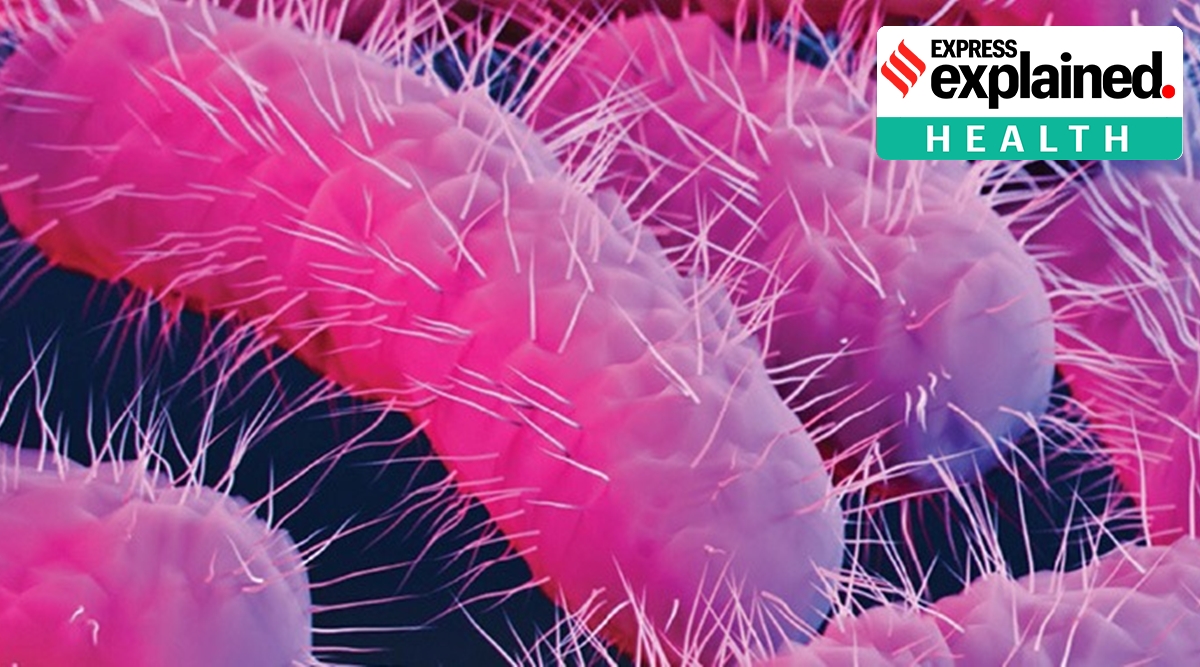Explained: What is Shigella, the bacteria that killed a girl after she ate shawarma in Kerala? - The Indian Express

The presence of the bacteria was confirmed in the blood and faeces of people undergoing treatment after they consumed chicken shawarma from an eatery at Cheruvathur in Kasaragod last week. Police have arrested the owner and staff of the eatery.
While food poisoning is fairly common and can occur in a range of situations, how common is Shigella infection, what are its symptoms, and when should you consult a doctor?
First, what is Shigella?
Shigella is a bacterium that belongs to the enterobacter family — a group of bacteria that reside in the intestine, not all of which cause disease in humans. It mainly affects the intestine and results in diarrhoea, sometimes bloody, stomach pain, and fever.
Best of Express Premium
The infection spreads easily as it takes only "a small number of bacteria to make someone ill", says the US Centres for Disease Control and Prevention (CDC). It is a food- and water-borne infection, and can happen when someone consumes contaminated food — like in the case from Kerala — unwashed fruit or vegetables.
The disease is easily spread by direct or indirect contact with the excrement of the patient. You can get the infection if you swim or take a bath in contaminated water.
How widespread is Shigella infection?
"Shigellosis happens, but it is not a very common infection. We usually see infections like typhoid and cholera because of contaminated foods. Perhaps one in 100 cases of diarrhoea in our hospital would be shigellosis," Dr Suranjit Chatterjee, senior consultant of internal medicine at Indraprastha Apollo hospital in New Delhi, said.
Shigella outbreaks appear to be exacerbated during pregnancy and in children under five years of age, and in those with weakened immune systems.
There are four types of Shigella bacteria that affect humans — Shigella sonnei, Shigella flexneri, Shigella boydii, and Shigella dysenteriae. The fourth type causes the most severe disease because of the toxin it produces.
But is it common for people to die of the infection?
It is not. Doctors say that the infection does not generally kill, unless the patient has a weak immune system or the pathogen is resistant to the antibiotics that are prescribed. "It is a very treatable condition; if a patient reaches hospital on time they can effectively be treated using IV antibiotics," Dr Chatterjee said.
He said that doctors usually send samples of patients with severe diarrhoea for culture to see what pathogen is causing the symptoms, in order to decide which antibiotics were likely to work the best. "In the meanwhile, doctors prescribe antibiotics for the most common infections that cause diarrhoea, and they will generally work for Shigella as well," Dr Chatterjee said.
The problem though, occurs when the antibiotics do not work because the bacteria are resistant to it.
"The problem with Shigella is that it produces a lot of toxins that can affect all other organs. So, if the bacteria continue to proliferate in the body even after giving the antibiotics, it will continue to produce toxins, which can then affect the kidney, cause seizures, lead to multi-organ failure, and shock, and even turn fatal," Dr Amit Singh, associate professor at the Centre for Infectious Disease Research at the Indian Institute of Science, Bangalore, said.
This, however, does not happen in most cases, Dr Singh said. "The mortality of the infection is less than 1%," he said.
So if you have abdominal discomfort or an upset stomach, at which point should you start worrying?
There is no need to rush to a doctor or a hospital every time you have loose motions, Dr Chaterjee said. However, if you have loose motions accompanied with high fever, blood in the stool, or constant vomiting such that you cannot keep any fluids down, you must get yourself to a doctor.
A person who has severe diarrhoea — which means 20 or more bowel movements in a day — must see a doctor within a day; a patient with mild diarrhoea may wait for three to four days before going to a doctor.
"This", Dr Chatterjee said, "is true of any diarrhoea, whether it is because of Shigella or any other reason". It is possible that the student from Kerala who died after eating the shawarma did not get medical treatment in time, he said.
Newsletter | Click to get the day's best explainers in your inbox
What precautions should you take?
The measures to prevent a Shigella infection are the same as that of any other food- and water-borne infection. Wash your hands thoroughly before and after a meal. Wash your hands properly after a bowel movement. Ensure the water that you drink is clean and the fruits and vegetables are fresh.
"Products such as milk, chicken, and fish can get infected easily and must be kept at a proper temperature. They must also be properly cooked," Dr Singh said.
Comments
Post a Comment